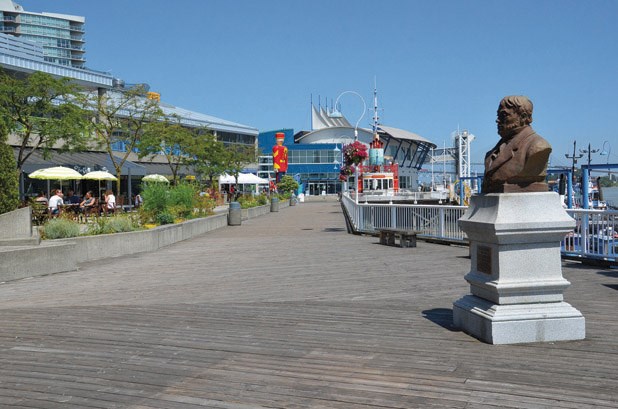Health officials still don’t know what in New Westminster is making people sick with legionnaires’ disease this summer, including a 70-year-old grocery store clerk who’s lucky to be alive after being infected with the potentially deadly bacteria.
The woman, who did not want her name published, lives near the Quay, an area associated with the cluster of cases, according to Fraser Health.
She started feeling run down in June, she said.
She lost her appetite, her back ached, her head ached, she couldn’t sleep and she began running a fever. Things came to a head on July 3, she said, when her fever spiked and she began feeling and acting “weird.”
“That day was just a blur,” she said.
She called her best friend next door to bring her some ginger ale.
The friend left it on her doorstep, but noticed later that night that it was still there and became concerned. She had a key and let herself in to find the woman lying unconscious halfway down a set of stairs.
“I had gone to get the ginger ale, but I couldn’t make it to the door,” the woman said.
She was rushed to critical care at Royal Columbian Hospital.
“I remember the doctor saying to me, ‘Look at me. You are very sick. I don’t know what you have, but I’ll find out.’ That’s all I remember from that night.”
It wasn’t until about two weeks later, however, that an infectious disease specialist told her she had legionnaires’ disease.
The woman, who said she never gets sick, was in hospital for 28 days.
“You have no muscle left, you have no energy, nothing. I lost 20 pounds. I couldn’t even walk to the washroom when they finally unplugged me from some stuff.”
Her doctor has told her she won’t be ready to return to work for some time, but she’s already feeling much better than she did at the beginning of her ordeal.
“I feel like a different person,” she said.
Legionnaires’ disease is caused by a bacterium called Legionella, commonly found in freshwater, groundwater and soil.
The bacteria can thrive and spread in human-made building water systems, like cooling towers, hot tubs that aren’t drained after each use, decorative fountains and large plumbing systems.
People can get legionnaires’ disease when they breathe in small droplets of water in the air that contain the bacteria.
Most healthy people don’t get the disease from being exposed to Legionella, but people who are elderly, smoke, have chronic lung conditions or are immunocompromised are at higher risk of developing pneumonia and symptoms like fever, shortness of breath, severe fatigue, abdominal pain and diarrhea.
For those who develop legionnaires’ disease pneumonia, the risk of death ranges between 10 to 25 per cent, according to Fraser Health.
Normally the health authority sees between four to 15 cases of legionnaires’ disease in a year in the health region.
Since June, however, six cases have been identified in New Westminster alone, with the most recent case confirmed last week, according to Fraser Health interim chief medical health officer Dr. Elizabeth Brodkin.
Two of the patients are in hospital, she told media Tuesday, while the rest are recovering at home.
Fraser Health health protection services and City of New Westminster staff are hunting for the source of the bacteria, according to Brodkin.
“That is not a small piece of work,” she said. “Any manmade water system, whether it is a cooling tower on top of a building or whether it’s a fountain or water feature are possible places where the bacteria can grow and thrive, and so all of these are being looked at.”
Brodkin said standing water at large construction sites by the Quay are a “less likely” source of the outbreak.”
The incubation period for legionnaires’ disease is 19 days, but people typically start to develop symptoms within five days.
Fraser Health is urging anyone with a high-risk condition who develops symptoms within 19 days of being in New Westminster to seek medical attention.



